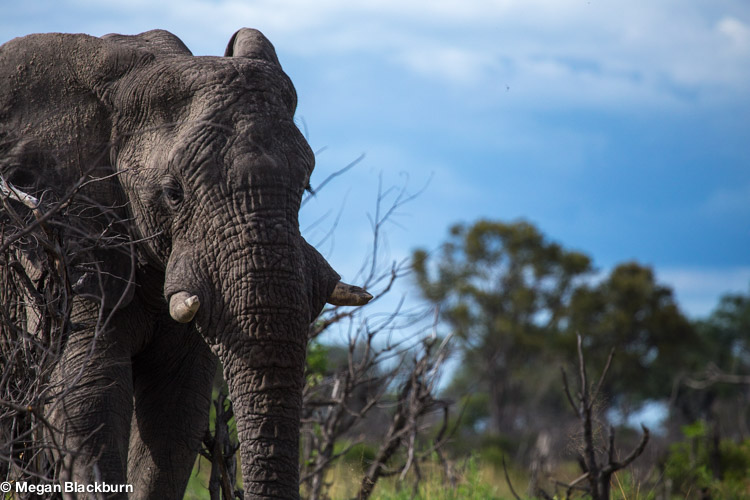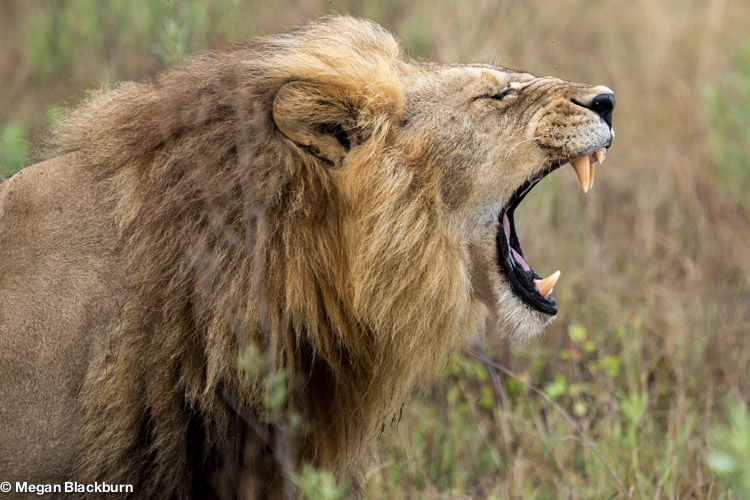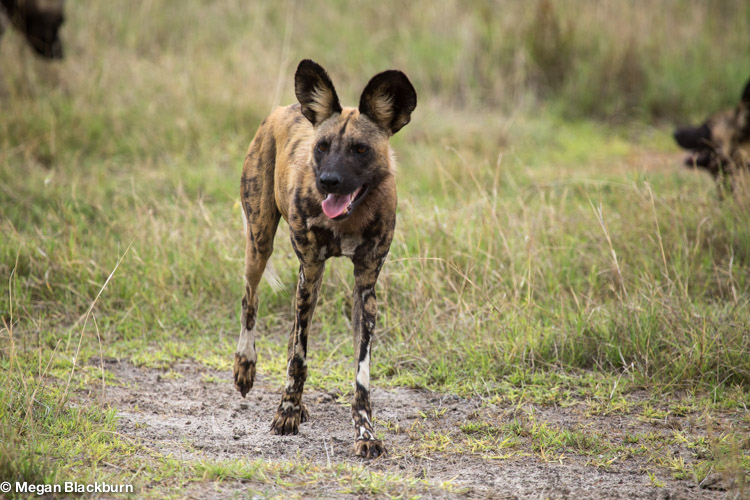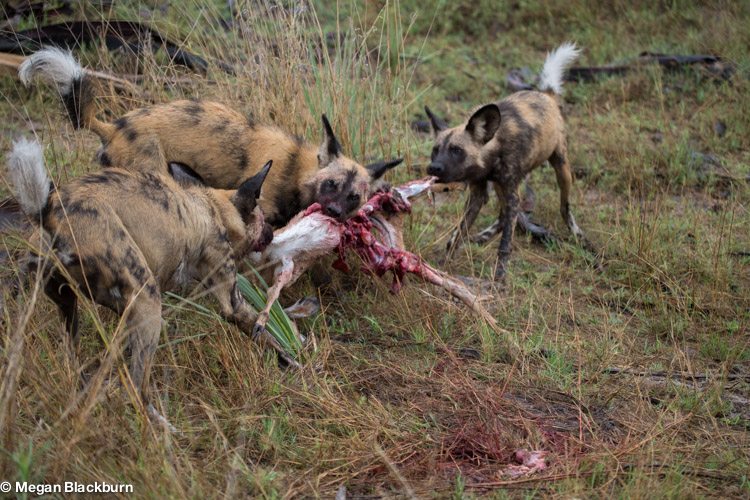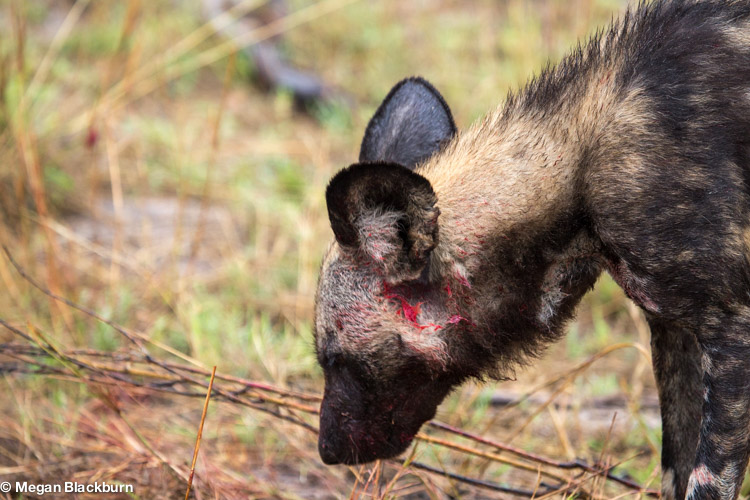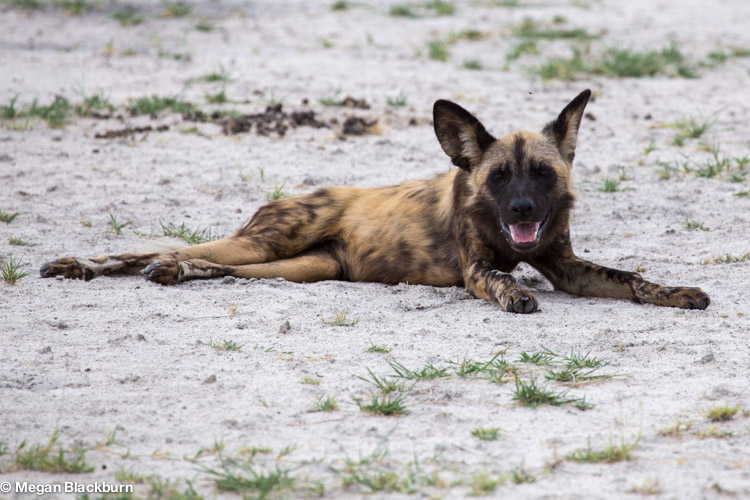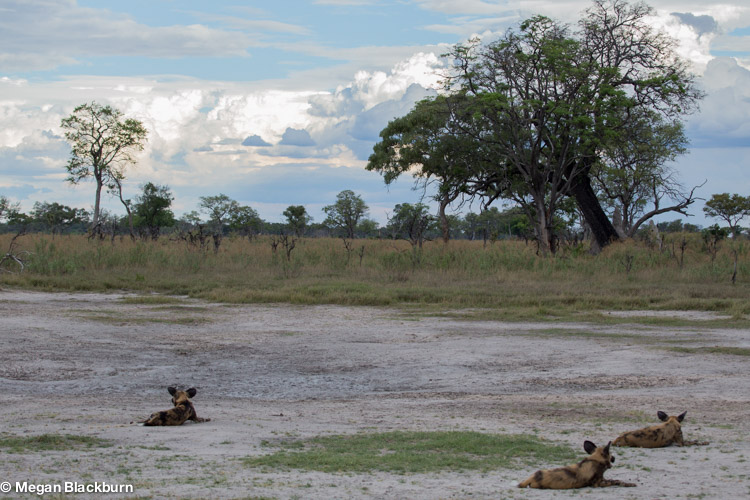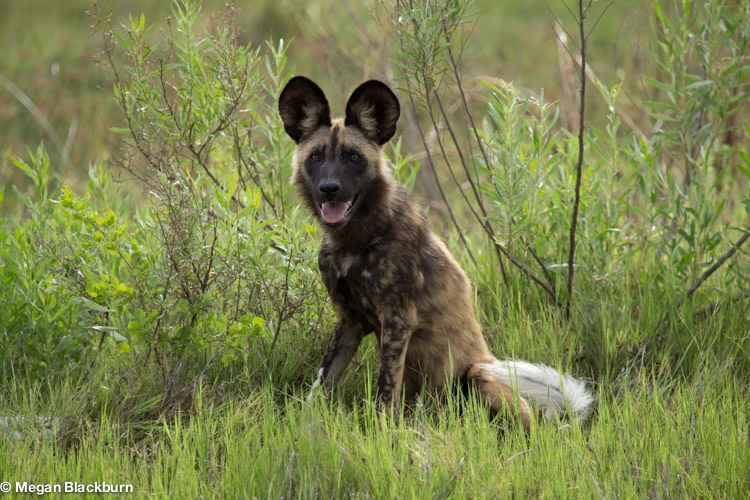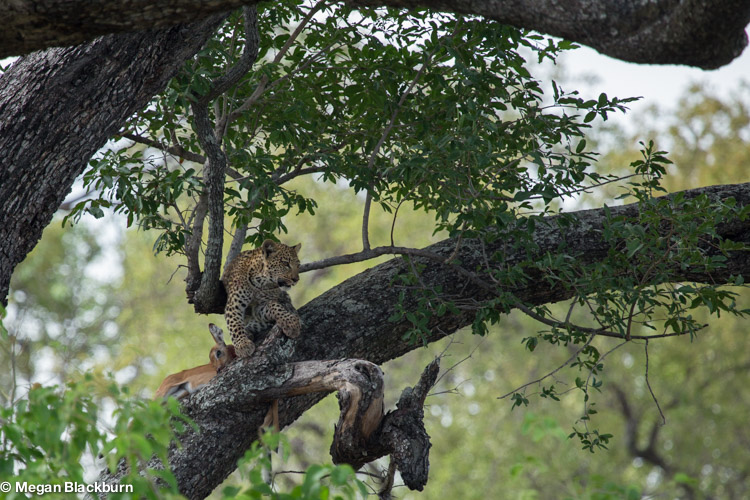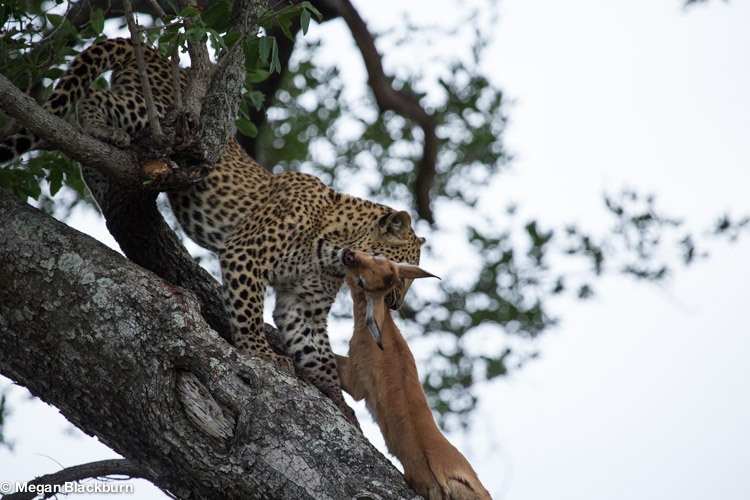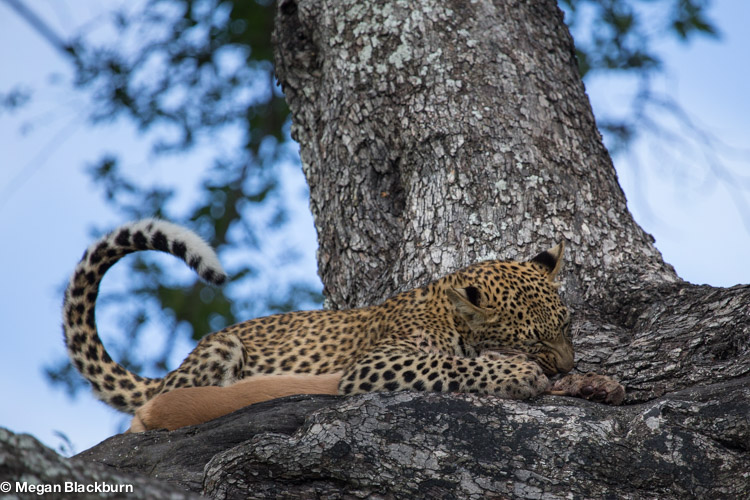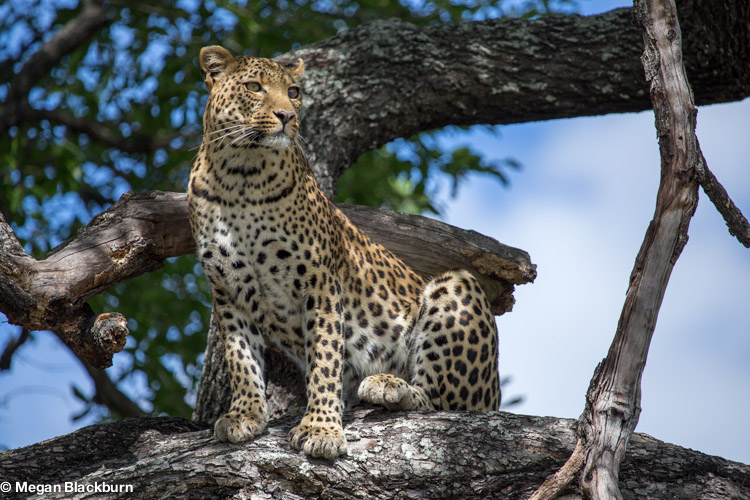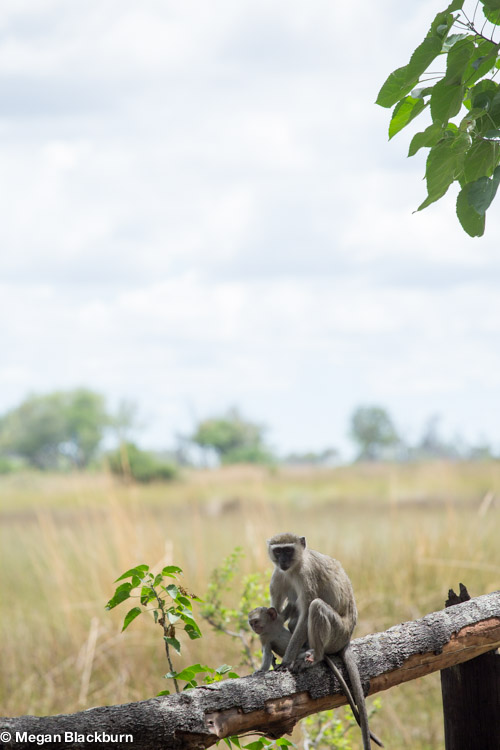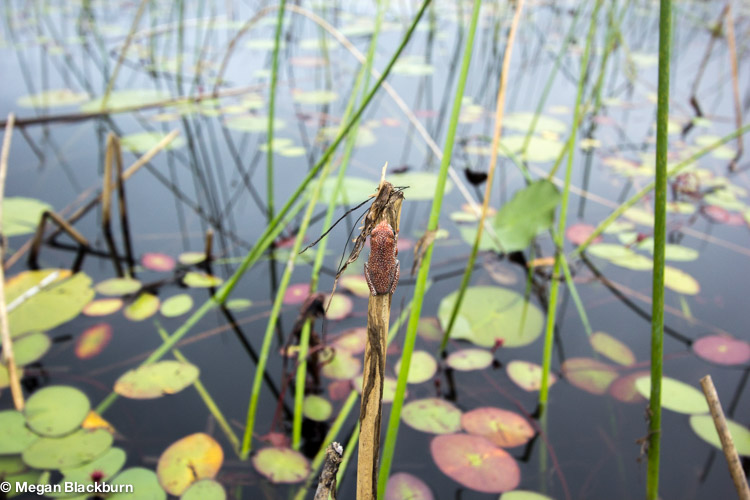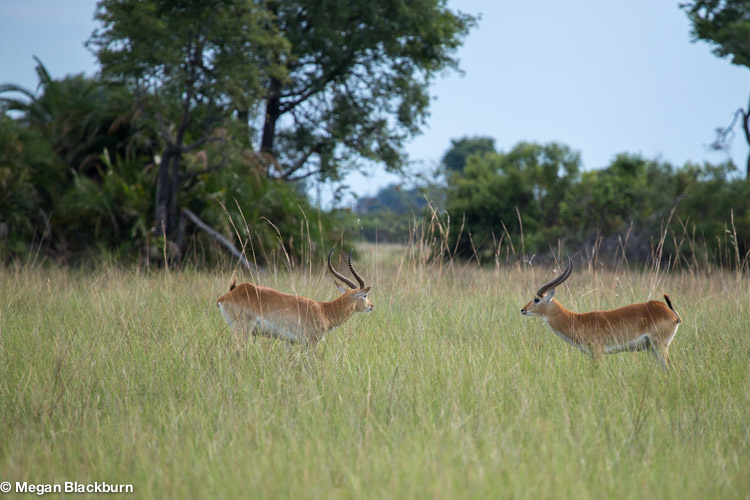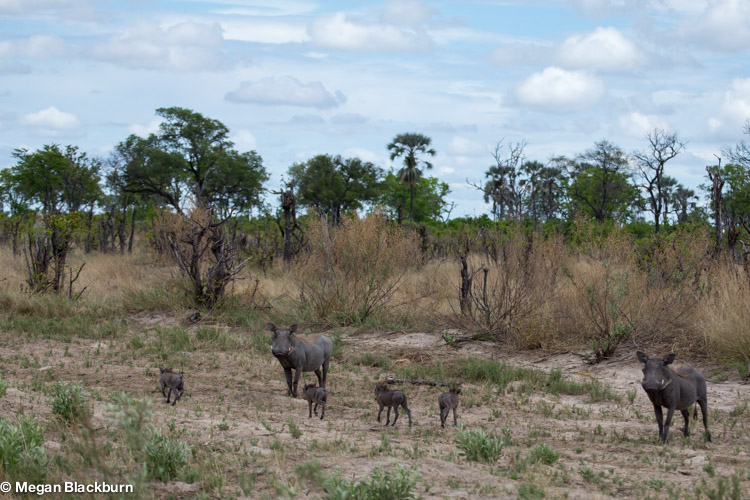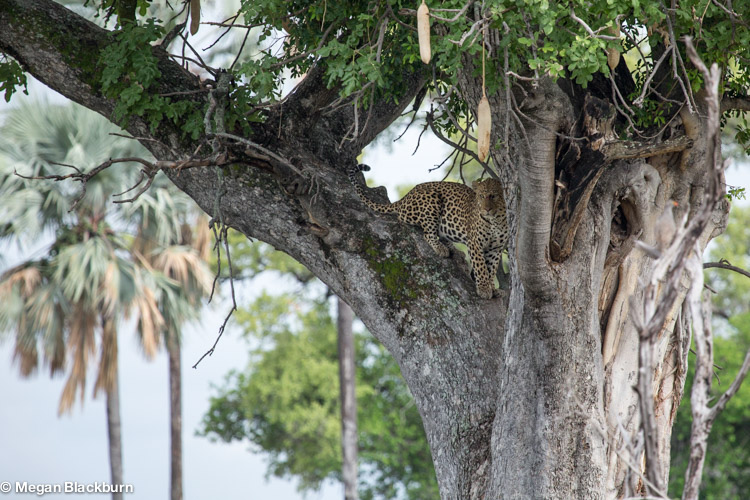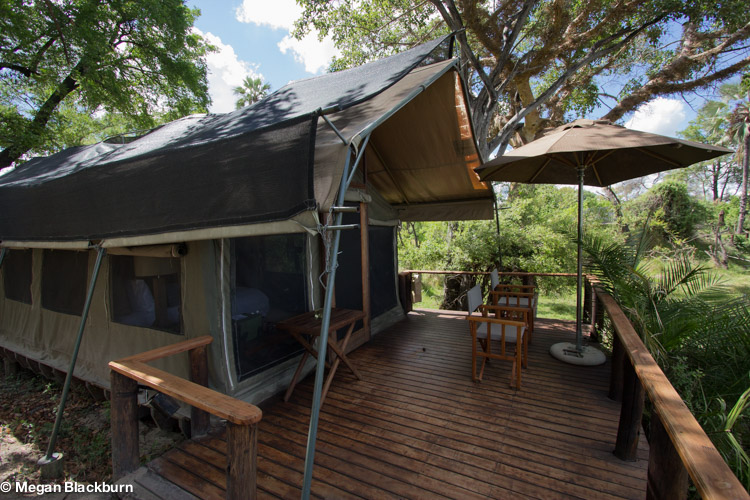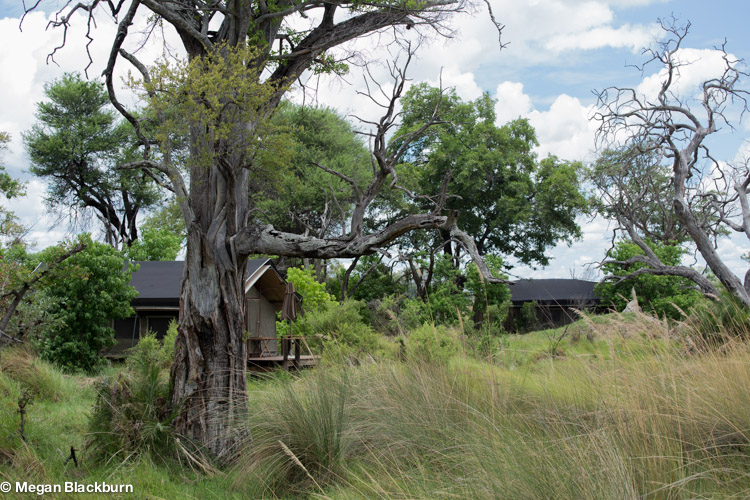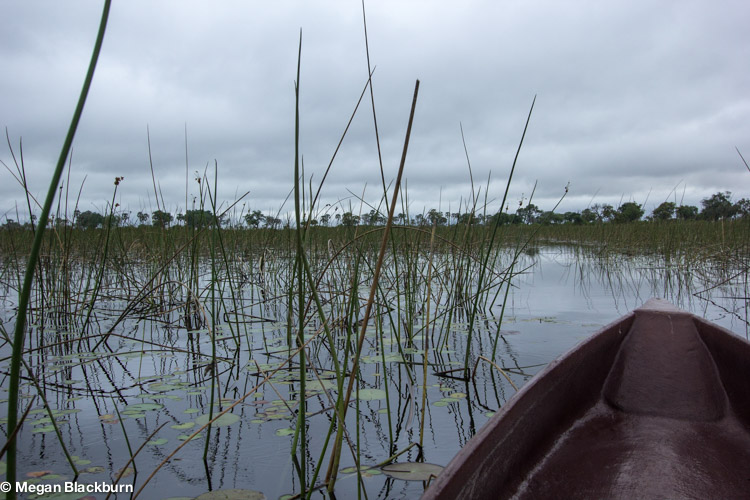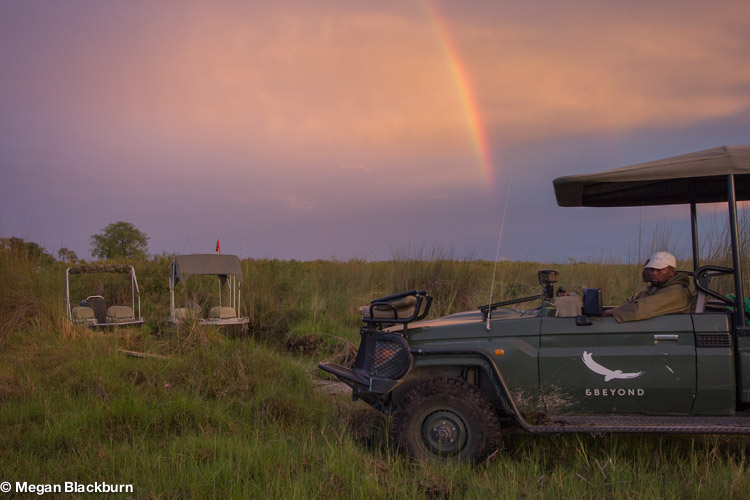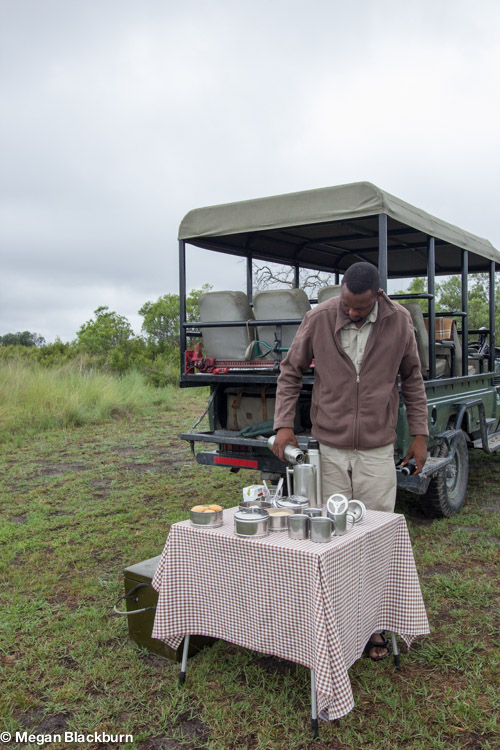
An Okavango Safari
After an extremely turbulent flight on my way home from Phinda that ended with an aborted landing in Johannesburg, I wasn’t looking forward to getting on another small plane to reach Nxabega Okavango Tented Camp in Botswana, but the only way to reach the Delta is via plane. I boarded the tiny five seater in Maun with two other passengers and a weeks worth of fresh produce for Nxabega and tried not to imagine all the ways the plane could drop out of the sky. From the air I had expected to see the lush, green landscape and water tributaries dotted with lily pads, great white egrets, and hulking hippos similar to all of the photos I had seen, but the land looked parched. December is the beginning of the rainy season and thunderstorms are frequent. The water actually arrives from the Angolan highlands in March/April and that is when the Delta comes into its prime in terms of weather and animal viewing, although now is the time for birding.
The landscape differs completely from anywhere I have been in South Africa. There are wide open plains that will fill with water and the horizon is punctuated by huge grey termite mounds. While there are trees, there isn’t the same thickets that you often find in South Africa and never once did the ranger call out “thorns” and we all maneuvered to dodge the spiky branches.
Traveling in the off season meant I was the only guest at camp for two nights and most of the staff were on holiday enjoying the lull before the holiday season rush. There is something odd about having a camp that accommodates 18 at full capacity open for just one person. Every day the safari shop opened, bottles of water were put in the cooler box next to the pool in case I wanted to take a dip, and an elaborate high tea was prepared to be enjoyed before the evening game drive. On the middle night a travel agent from the U.S. was also in camp. It was the first time I had encountered a young solo traveler on safari and it was nice to have another traveller to eat meals with since I often feel as though I am foisting my company on the staff that are assigned to eat with me. I once told an and Beyond camp manager that I didn’t mind eating dinner alone as I had brought a book. She replied, “Oh, we would never let that happen at and Beyond.”
Being the low season the game was more scattered and besides huge herds of impala and zebras we often only saw one wildebeest or buffalo at a time. I knew that Nxabega has wild dogs on the concession which is the animal I was hoping to see, but after two drives trying to track them we only caught a glimpse of them moving at night. Wild dogs move incredibly fast and spread out over a large area and since we had no other vehicle to assist in finding them, we had to rely on the superb tracking skills of the guide and tracker. This is a somewhat easier task in the Delta since the earth is sandy and because we had a bit of rain every day. Usually when the ranger jumps out of the vehicle to point at a print saying, “look it’s a leopard, you can tell because it is similar to a lion, only smaller,” all I can see is one toe. Everyone else in the vehicle looks as puzzled as I am. Then the ranger painstakingly traces the outline of the print and everyone nods, “oh yes, there it is.” I usually still only see a toe. In the Delta I actually could see the tracks and found myself looking over the side of the vehicle trying to identify what had passed along the road earlier in the day.
On the third drive we found the small pack of five wild dogs playing and finally settling down in a dried out water pan. On the forth drive we saw them make a kill. They were playing in the grass and then they were off at a high speed our vehicle trailing just behind them. While we didn’t see the kill, we did get to them as they ripped the baby impala into pieces. It was a bloody, vicious affair and yet utterly fascinating to witness. And then we say them again on the fifth drive as we made our way to a channel for a boat ride. We spent so much time with the small pack of dogs that by the end of the safari I could tell them apart.
Another amazing sighting was a young leopard cub devouring a baby impala in a huge jackalberry tree while her mother watched from a nearby branch and her shy brother stayed out of sight. Not being satisfied with the position of the impala, she dragged it along a branch almost dropping it at one point before settling into a comfortable position. She proceeding to gnaw its face off with one claw digging into the corner of the impala’s eye which was particularly gruesome. At one point another baby impala walked within sight of the leopards and the mother went from lazing in the tree to intently staring at the impala as if she was deciding whether it was worth the effort to hunt again, but she ultimately decided to settle back down on her perch.
We saw plenty of other animals, including a number of antelope species that I had not seen before as well as the usual sitings, including some highly entertaining vervet monkeys and warthog piglets.
In addition to game drives, Nxabega also offers a number of water based activities including boat and makoro (a traditional canoe) rides through the reedy water channels. Like walking through the bush, the focus is on the smaller things – frogs, trees, and birds. The beautiful call of the African fish eagle echoing off of the water while surrounded by papyrus plants is sublime.
As this is a tented camp, accommodation is rustic but luxurious – toliets, hot water, and electricity during the day. Sleeping in a tent allows you to experience all of the sounds of the bush, including bellowing hippos grazing just outside of the tent, lions calling in the distance, and what seemed like millions of termites flying out of their mounds – their wings beating against the the tent creating a incredible din.
The Delta is isolated and a good place choice for a seasoned safari goer. The roads are impassable for half of the year and the only way to move around is by plane or boat. Everything has to brought from Maun or even South Africa which means the camps are generally more expensive. There is no cell phone signal and while I was at Nxabega the internet was down as well, leading to a wonderful sense of isolation and solitude. Truly an authentic bush experience.
